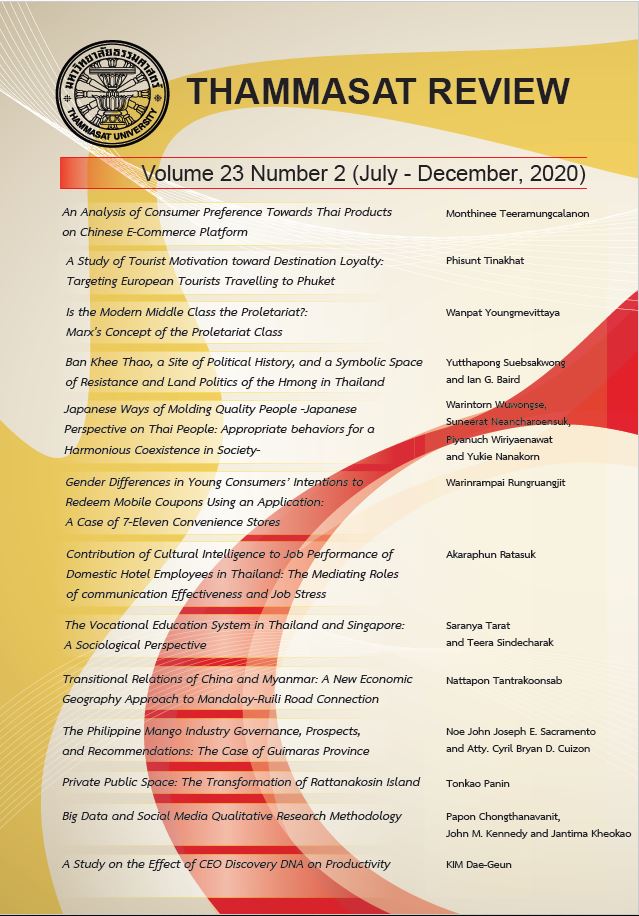An Analysis of Consumer Preference Towards Thai Products on Chinese E-Commerce Platform
Keywords:
Consumer Preference, Consumer Satisfaction, E-Commerce Platforms, Chinese Consumers, Thai ProductsAbstract
China’s e-commerce industry has grown exponentially over the past decade and has become an important channel for international goods to access the expansive Chinese consumer base particularly at a time when demands for imported goods are on the rise. Thai products, in particular, are popular with online Chinese consumers due to the perception of them being closely associated with local wisdom and thus unique. Nevertheless, there remain several factors that hinder the sales of Thai products on Chinese e-commerce platforms.
This study aims to explore Chinese consumer preference towards Thai products on e-commerce platforms by examining the factors that affect consumers. Results from online surveys of 124 Chinese respondents in three first-tier high-purchasing power cities of China indicate that product information quality for Thai products is the most essential factor with a significant positive effect on consumer satisfaction. However, trust, electronic word-of-mouth and price consciousness have an insignificant effect on consumer satisfaction. Moreover, consumer satisfaction is found to significantly influence and exert a mediating role in the increase of Chinese consumers towards Thai products. Even though these results differ from the previous studies, they havehed light on the significance of product information quality as the decisive factor that affects consumer satisfaction over electronic word-of-mouth, trust and price consciousness due to the intrinsic characteristics and unique nature of Thai products.
Thai manufacturers and retailers should pay greater attention to enhancing product information quality which, in turn, will be favorable for improving consumer satisfaction, purchasing behavior, and will help to further penetrate the Chinese online market.
Downloads
Published
How to Cite
Issue
Section
License
The opinions and ideas expressed in all submissions published in Thammasat Review are solely that of the author(s) and do not necessarily reflect that of the editors or the editorial board.
The copyright of all articles including all written content and illustrations belong to Thammasat Review. Any individuals or organisation wishing to publish, reproduce and distribute a particular manuscript must seek permission from the journal first.








